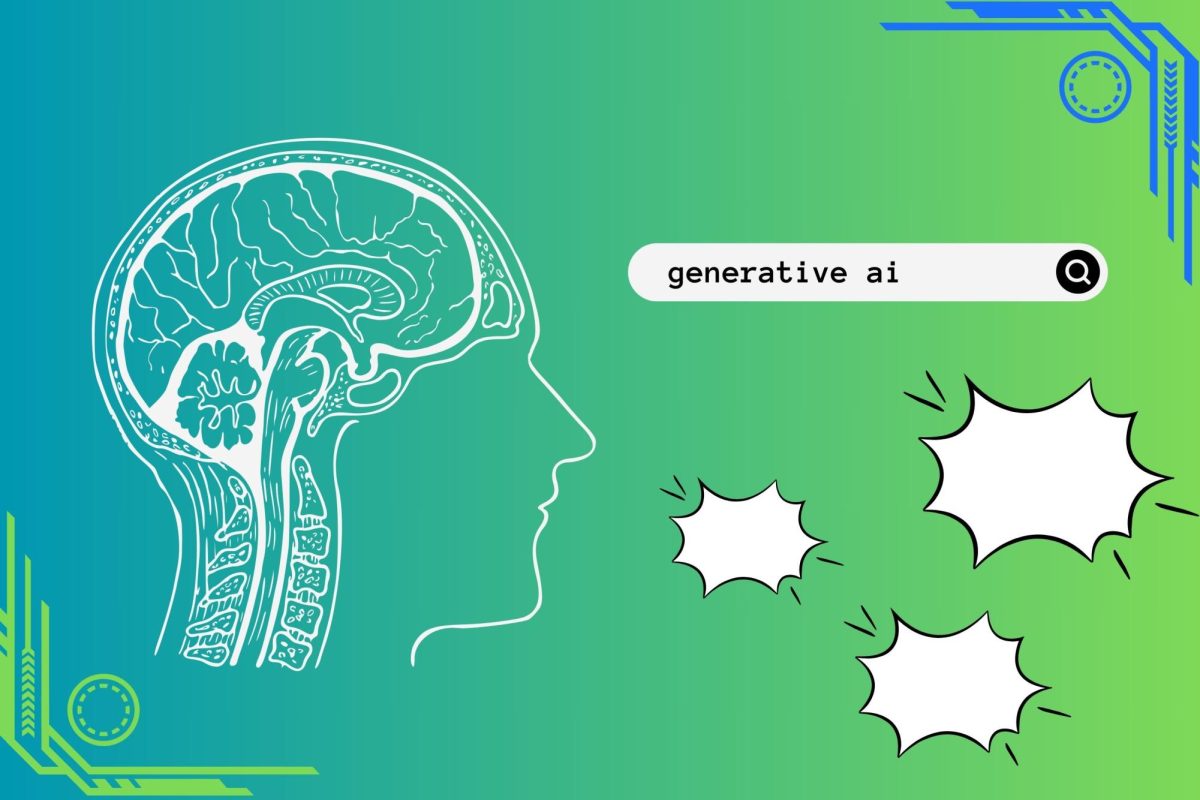The Office of the Provost hosted the first events in its conversation series focused on generative artificial intelligence Thursday afternoon. The conversation centered around the future of AI and an exploration of the ethical considerations that come with it.
Mohammad Hosseini, a postdoctoral scholar in the department of preventive medicine at the Feinberg School of Medicine’s Galter Health Sciences Library & Learning Center, focused on the discipline of agnostic ethical issues. He discussed the ethics of authorship ― including who should be considered an author, the conditions governing authorship and the division of responsibilities across various aspects of work
“In any discipline, one will have to cite something,” Hosseini said. “Regardless of what you do for research, you have to publish it. It’s like you haven’t done anything if you don’t.”
Brendan Quinn, a senior developer at NU Libraries, said the issue of AI in citations is affecting his career right now.
He said he gave a presentation in which he generated images using DALL-E 3, a generative image software, and was uncertain on how to cite them appropriately.
Quinn said with no real norm for citing AI-generated work, he developed his own method of citation. He said he did not want to make it seem like he was tricking people. Instead, he said, he wanted to be transparent about his use of generative AI tools.
“I started my talk by saying, the images you’re going to see are generated by DALL-E 3 unless otherwise noted,” Quinn said.
Hosseini said minimizing bias in AI is a large challenge. There needs to be a cautious implementation of AI in vital sectors like education, he added.
Political science Prof. Ricardo Galliano Court said using information and text from the internet where there is a lot of repetitive and low-quality information and then reformatting it for a professor creates a number of problems, including concerns around academic integrity and proper citations.
Court said errors are an inherent part of a student’s thinking process. He said generative AI can assist in the act of thinking but is unlikely to replace the act of critical thinking, in which ideas are carefully developed and refined.
“One of my worries with generative AI is that if you get a product, that is the derivative product of the already received wisdom,” Court said.
However, he said he also saw the potential of generative AI to redirect students to traditional texts and libraries and expand the range of texts available that the internet has initially obliterated.
Hosseini said people should be cautious when using generative AI in educational spaces, since it is likely that its answer could have potential biases that someone might not be able to necessarily recognize at a first glance.
“AI is going to affect your life in ways that we cannot always anticipate, but being ready for it (and) learning about it is going to put you on the right path and prepare you for future opportunities,” Hosseini said.
Email: emilykim2025@y.northwestern.edu
Twitter: @heyyitsemoly
Related Stories:
— Northwestern’s AI Club looks towards the future
— Northwestern community members discuss use of AI program ChatGPT to write academic papers
— Letter to the Editor: Open letter by Northwestern faculty in support of academic integrity



















